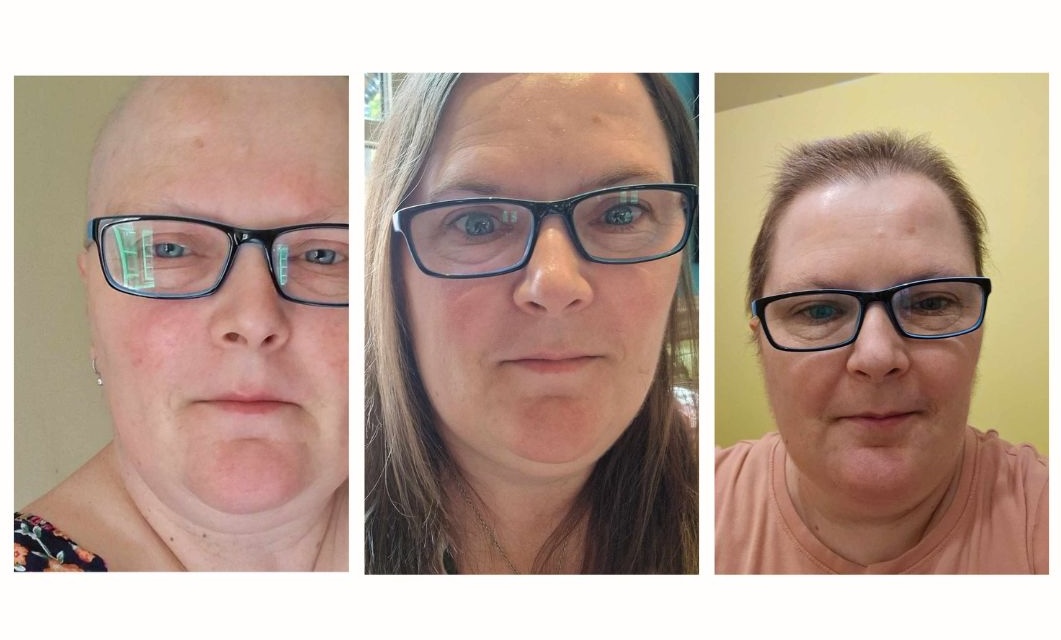Breast Cancer Awareness Month: Rebecca’s Journey of Resilience
October is Breast Cancer Awareness month, providing education to help prevent and cure breast cancer. With 55,920 new cases each year, according to Breast Cancer Research UK, there is a 1 in 8 chance of women developing breast cancer in their lifetime.
Area Manager Hayley Oakley spoke to Rebecca Bidulph, Lead Fleet Coordinator for Enterprise Flex-E-Rent, to find out more about how she successfully combatted this deadly disease and to raise awareness.
“I’ve been very open... I think it’s important to speak about it so that people who are going through the same thing don’t feel alone”
What first prompted you to see your GP?
I noticed a lump which was quite big and worried me. I only learned after speaking to the doctor that I had been checking myself too often, which I did not realise was a thing.
The doctor advised that I would have struggled to notice the changes by checking every week and the optimal frequency to check was once a month.
I had dismissed my initial symptoms – hot flushes, dry eyes, sleepless nights, weight gain – as menopausal symptoms. But these were accelerated by the cancer.
I was in total shock, the lump seemed to appear out of nowhere. It was very scary, but the NHS has been incredible.
You called your GP and made an appointment, what were the next steps?
I was referred to the breast clinic for further tests. During the mammogram, I could tell by the way they were talking that there was a problem. Finally, after lots of waiting, we were told it was cancer.
The clinic staff were very reassuring and said not to worry, it did not seem to have spread and it was totally sortable. I had further tests, a CT scan and a biopsy. It was only after Christmas that I was told the final results. It was a very scary time.
At what point did you tell your colleagues and line manager at work?
I told my managers and HR about what was happening pretty much as soon as I found out it may be cancer, as it was constantly on my mind and causing me stress.
I asked if I could step down from supervisor to team leader during treatment, as I felt that the stress was just too much. They were all incredibly supportive. The support I have received has been immense from all areas of the business and co-workers, way more than I would have anticipated.

“I could tell by the way they were talking that there was a problem”
How did you feel starting your treatment?
It helped having time away from work to focus on my recovery while I was having chemotherapy and my operation. Every cancer is different, and everyone manages their own symptoms differently.
It was exhausting and a very tough time. I’ve been very open about my treatment, diagnosis and how I’m feeling. I think it’s important to speak about it so that people who are going through the same thing don’t feel alone and know they can reach out.
The hospital put me in touch with Macmillan and they did sessions on managing your treatment and diagnosis, including beauty courses and wig fitting services and how to deal with the effects of chemo. They’ve also provided support for my family and friends.
How did you feel when you lost your hair?
I felt self-conscious when my hair started falling out. We discussed how we would manage it as a family. When it started to come out, it was like a game: how big was the hairball today?
When we needed to shave off what was remaining, my daughter took charge. We joked a lot about it. We went out one day and I drew my eyebrows back on and my daughter commented that I look better without hair. Although I was given a wig, I never used it. I had hats and scarves to protect my head when it was sunny, and I just ‘rocked the bald’ when it was not.
“Being back full time was challenging to start with, but work has been fantastic and incredibly supportive”
What happened after you finished chemo?
Right from the word go they said I would need a mastectomy. The chemo was just to make the operation easier. The surgeon then advised they could take do a quadrantectomy, which would possibly save my breast.
How was your recovery after surgery?
Recovery was two to three weeks. The quadrantectomy cleared everything and I am now having nine sessions of radiotherapy.
When did you return to work, and how have things been since you’ve returned?
I did a phased return in July, doing half days to get used to the working day and any new systems. I came back full time in the middle of August. Being back full time was challenging to start with, but work has been fantastic and incredibly supportive.
What advice would you give to anyone who may be in the same position as you?
Don’t keep it to yourself. It’s important to have a support network around you.
Check yourself monthly. If you notice any changes, no matter how small, go and see your doctor.
Stay positive. It’s tough at times, but be determined, and you will beat cancer like I did!
This Harvard Business Review article is a useful resource for people wanting more information on how to support a colleague through breast cancer.
If you are interested in a career with Enterprise, please visit our recruitment website at careers.enterprise.co.uk

